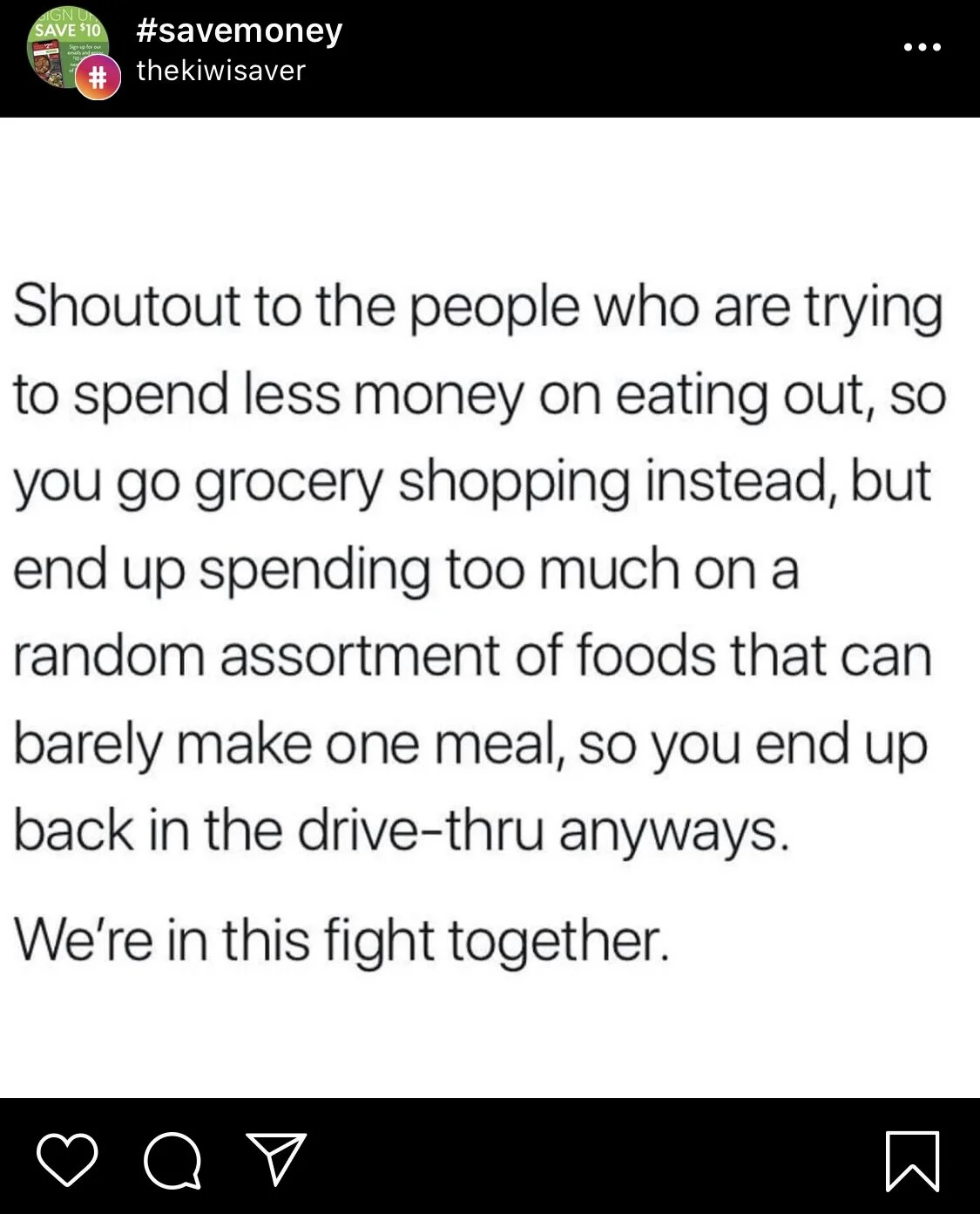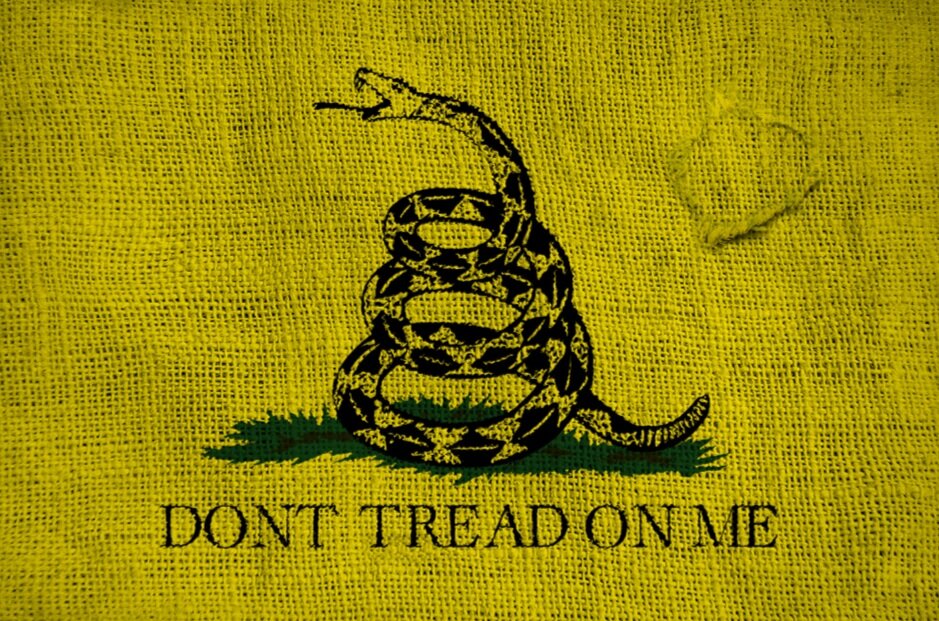Micro-Decision Fatigue
I read a quote somewhere on the internet once that read something like this: “You do not need to have an opinion on everything.”
And sure enough, Daily Stoic posts this just after I draft this article!
Isn’t that little reminder freeing? Sometimes, we forget that we have the ability to say no, thank you. Sometimes, we forget to uphold, or even establish, boundaries. Sometimes, a reminder of what we don’t do, or are unwilling to do, can be just as empowering as a reminder of what we are willing to do.
Behavioral economists have figured out that it’s not what we say we do, but what we do do, that counts. You can measure someone’s debt, not their declaration to get rid of their debt. You can track someone’s debt pay down, but not their well-meaning intentions to pay it down.
What we do shows what we’re willing to do, even if we don’t want to admit it. If we claim we’re “pursuing debt-free life,” but continue to swipe our credit card... clearly our actions demonstrate we’re actually willing to accrue more debt, despite our claims. Creating that say-do gap erodes our sense of well-being. Doing things that don’t support our goals and values weighs us down.
If we’re “eating clean,” but then go through the drive-thru, we feel guilty, our guts throw a fit, and we kick ourselves for wasting the money in food that, uh, backfired, and wasn’t “worth” the cost of making the poor choice in the first place.
But then we have a choice: we could keep beating ourselves up about it, or move on. What if... we rewind the clock. Before declaring we’re “eating clean” while pulling into the drive thru? What if, instead, we decided, “we don’t eat at (insert specific fast food establishment).” Not that you don’t eat at all drive-thrus, just that you don’t eat at (the place you picked).
BONUS: Your fat wallet fits great in your loose pants!
When you eliminate some of your options, you don’t have quite so much to worry about. We don’t buy certain foods because they’re sugar laden and hurt our tummies. Easy choice right? If it doesn’t exist to us at the store, it won’t exist in our home. We buy some sugary treats occasionally, but have ruled out most. When you scope your choices, you place yourself in a position to reduce the say-do gap.
Adulting is hard. I’ve heard several people mention this lately with the extra pressures of COVID-19 on our world and families. Every day, we adults make thousands of choices. Literally. A lot of them are very little choices, but they add up! This article, cited by Psychology Today, estimates we make 35,000 decisions each day, and over 200 decisions alone pertaining to just our food choices. Each and every day!
It can be exhausting. When decision fatigue creeps in, we make poor decisions, procrastinate, dither, or kind of shutdown altogether. Sometimes all at once!
Decision Fatigue Defense
When you eliminate some of the “options” that are sold to you, you can take back the reigns. With only one trip to the grocery store for the month, you are limited to what you have, and what you plan to pick up. It saves you gas, it saves you time, and it saves you energy because you’ve scoped your choices.
When you decide that all of your house-cleaning chores are done on one day, it frees up the other 6 days of the week for just light maintenance chores. You made the plan, you put in the effort, and then you just ride the wave of successfully executing the plan that you made until the next week, when all you do is repeat for continued success.
Same goes for meal planning, or any other plan. But meal planning can seem extra tricky. We might not know what we ‘feel like’ eating three days from now. That can make meal planning feel impossible. Once you decide that you’re cooking at home, though, it’s pretty clear you need some sort of plan to prevent this from happening:
I definitely used to be like this!
The kicker is, in that YOU deciding what options you have, you take back control against the constant onslaught of demands applied to us. Why, no, our house is not show-room perfect 6 days out of the week. But it’s great to baseline to that level once a week! Because it doesn’t need to be perfect. We live in our house, not in a museum.
Operation WHAT’S FOR DINNER
For meal planning, try thinking about what you ate last week. Then think about how often you eat those meals, especially if you cooked them yourself. There are lots of ways to structure your meal planning, meatless Monday, taco/Mexican Tuesday, etc. Or maybe you have one chicken, one beef, one pork, one veg meal… This helps you realize how many related ingredients you need every week, and makes planning for re-stocking your deep pantry really easy. (Check out our DIY Hamburger Sale article for more on meal planning hacks!)
An example of how to frame meal planning
When you start framing your choices this way, you’ll see this expand to all sorts of places in our life. You re-align your actions with your values, not someone else’s. You decide what’s important, you create the plan, then you follow your ‘rules,’ and no someone else’s! Definitely this is better than going along with some advertising firm’s values!
Trent Scott, in “Set For Life,” has a great section about not wasting time on inconsequential decisions. Sure, there might be some special meals on certain days for a few of the 365 days of the year. Set those aside, and plan for them to make them special. For the rest of the days, treat the answer to “what’s for dinner?” as an inconsequential decision. Build your systems so that you only buy affordable ingredients for healthy meals. Tada! Whatever you make for supper supports your budget goals, and nutrition goals, and is now inconsequential thanks to your prior efforts.
What “options” have you eliminated to free up your mind, heart, and energy for more deliberate, purposeful things? Do you meal plan, have a cleaning schedule, or another trick to help buffer against decision fatigue?












